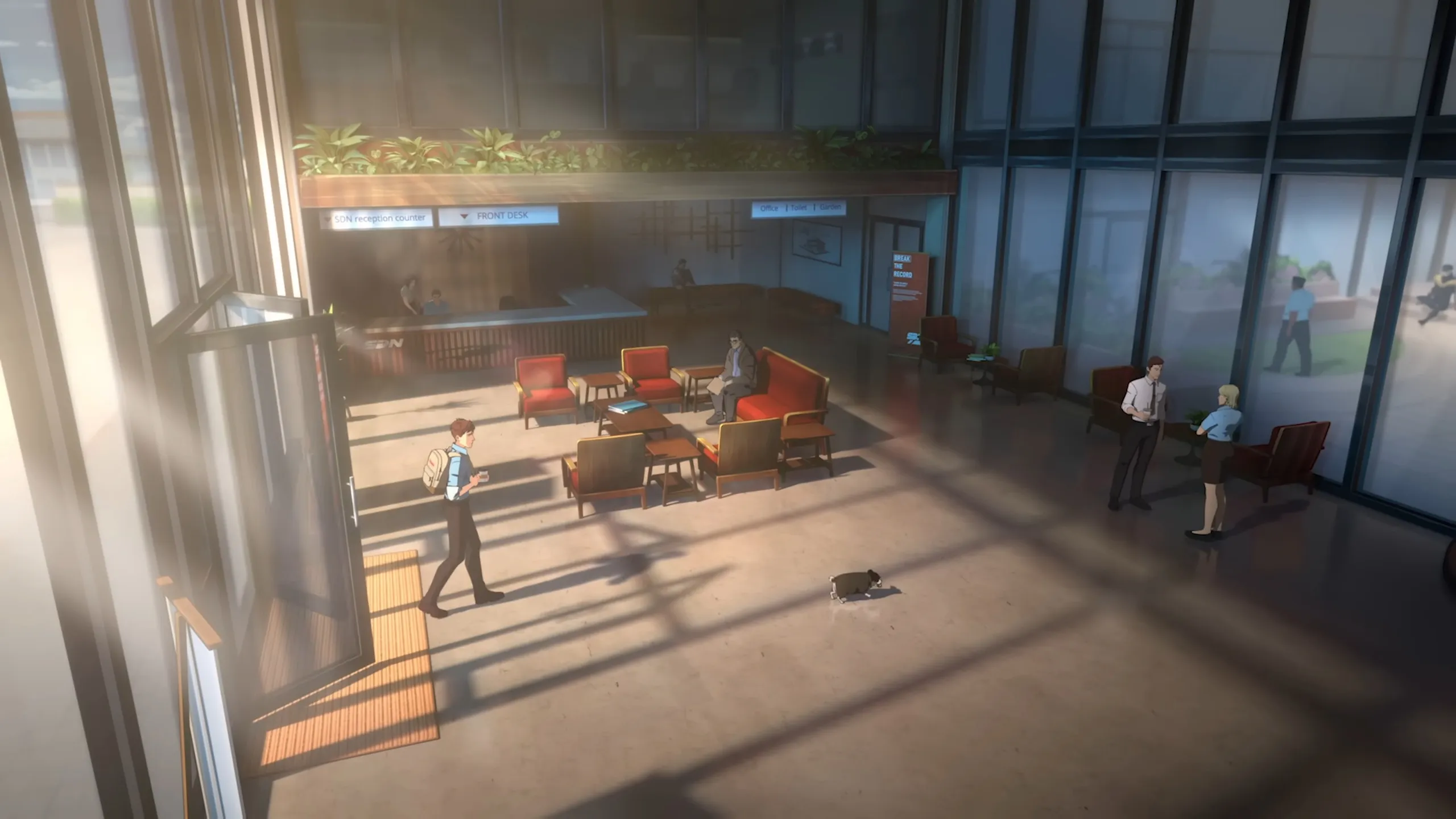

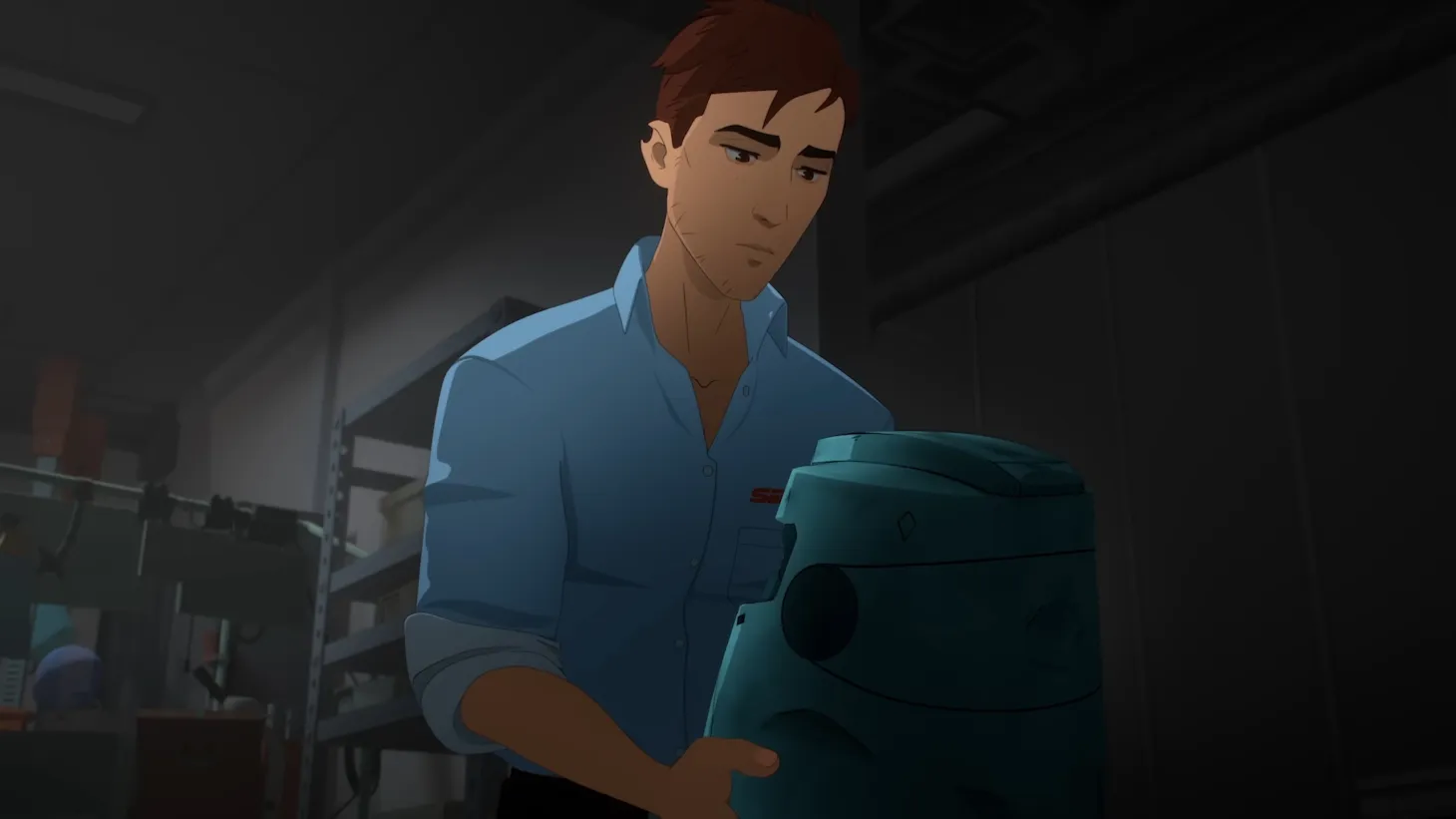
Dispatch, an interactive superhero workplace comedy from Adhoc Studios, is an ambitious project. The story has to balance comedy and personal drama, the animation needs polish worthy of a high-budget TV series, and the cast must be strong enough to support the lofty vision. When creative director Nick Herman and director Dennis Lenart were looking for a lead, one actor stood out above all the others: Aaron Paul, star of Breaking Bad and Bojack Horseman. There was just one problem.
"I mean, we never thought Aaron Paul would do this," Herman said when I interviewed him a couple of months back. "You know, you put together the dream list, and he was at the top." Still, their casting director, Linda Lamontagne, thought she could get a hold of him, Herman says. She had a feeling he'd connect with the script, and once he took a look at some scenes and the art style, he was down.

Last week, I got the chance to verify this story with Paul himself. After exchanging pleasantries between our low-res Zoom webcams (I'm from Ohio, he's from Idaho, and those states have similar-sounding names, right?), I point out the Bojack Horseman poster on my wall, and he's excited to see I'm familiar with his work.
"I just feel so blessed to have been a part of [Bojack Horseman] from its conception, you know, when it was just six pages of development, and then it became what it became. But what I really loved about that show in particular was: it's a comedy, and it's also very much a drama, you know? Follows real-life issues. And that's what Dispatch really has in spades."
In the game, Paul plays Robert Robertson, who was known as Mecha Man up until an accident renders his suit (and his persona) unusable. His new job is as a dispatcher, sending a group of villains-turned-heroes out to assist with emergencies, such as crimes, fires, and other problems people might need saving from. Dispatch's bright colors and comic book aesthetic make lighthearted, comedic moments fit right in, but the somber emotional core and themes about morality and redemption keep the tone grounded and the stakes high.
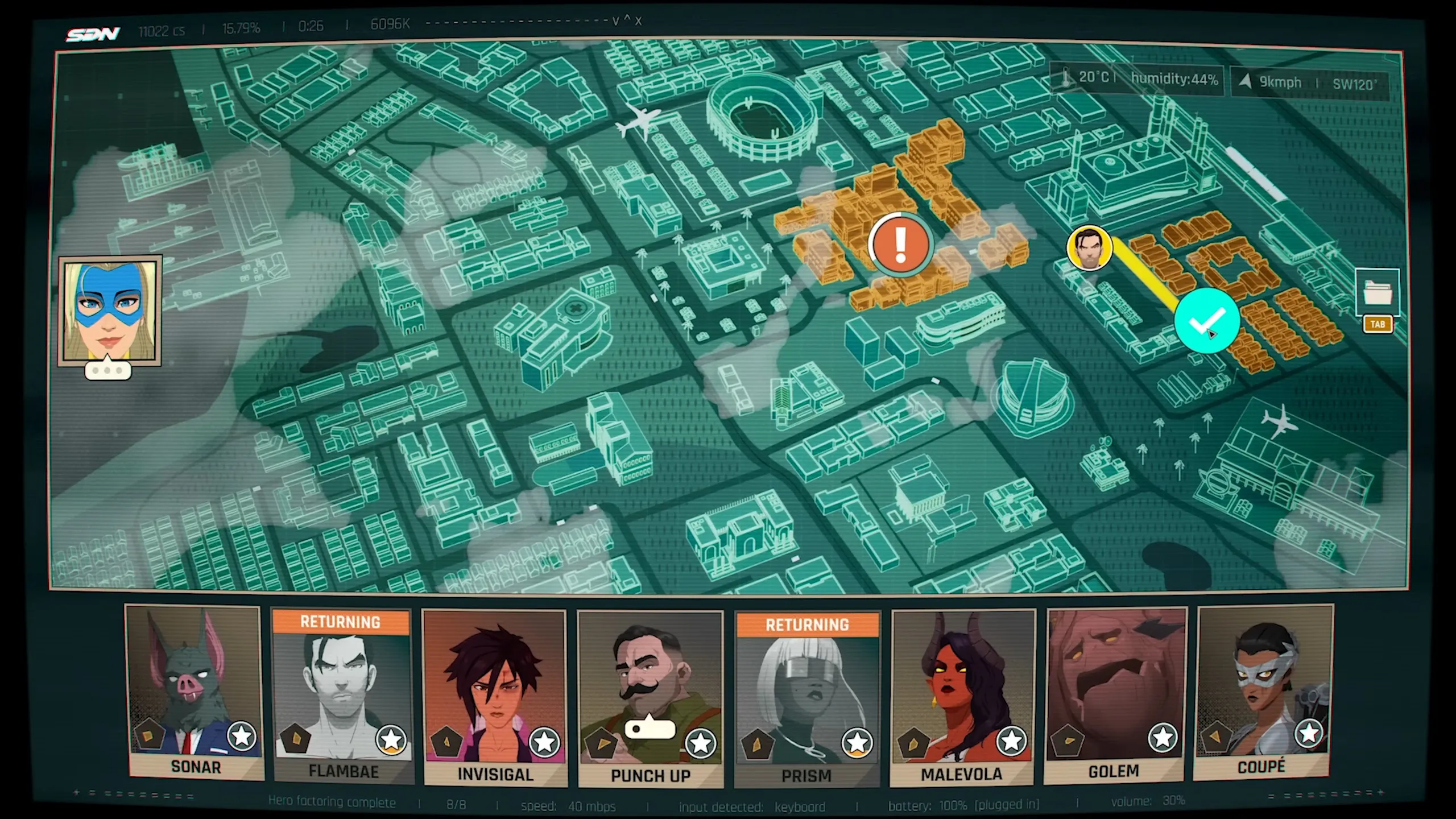
"Playing any sort of game or watching any sort of really good television or film – it has to start on the page. And the scripts were just so well written," Paul says, confirming Herman's story from earlier. "The funny elements were so funny, but also the dramatic elements were really, really heart-wrenching, you know, and it really made you think. And that's what I really responded to, just the tone of it."
According to Lenart, however, Paul was actually responsible for some of the more dramatic moments. "You could say that the whole experience [...] could be read as a little more lighthearted if you saw it before Aaron was involved, and then once he read as Robert and we started putting the voice lines into the game, you basically felt a lot more weight of Robert's backstory, and the stakes kind of went up."
The biggest difference between Dispatch and an animated show, according to Paul, is the time commitment. For something like Bojack, he says, "you would record all of the episodes within, you know, like a handful of months, and then it would be out, like eight months, nine months later, usually within a year of recording. But it took two years to record this particular game."
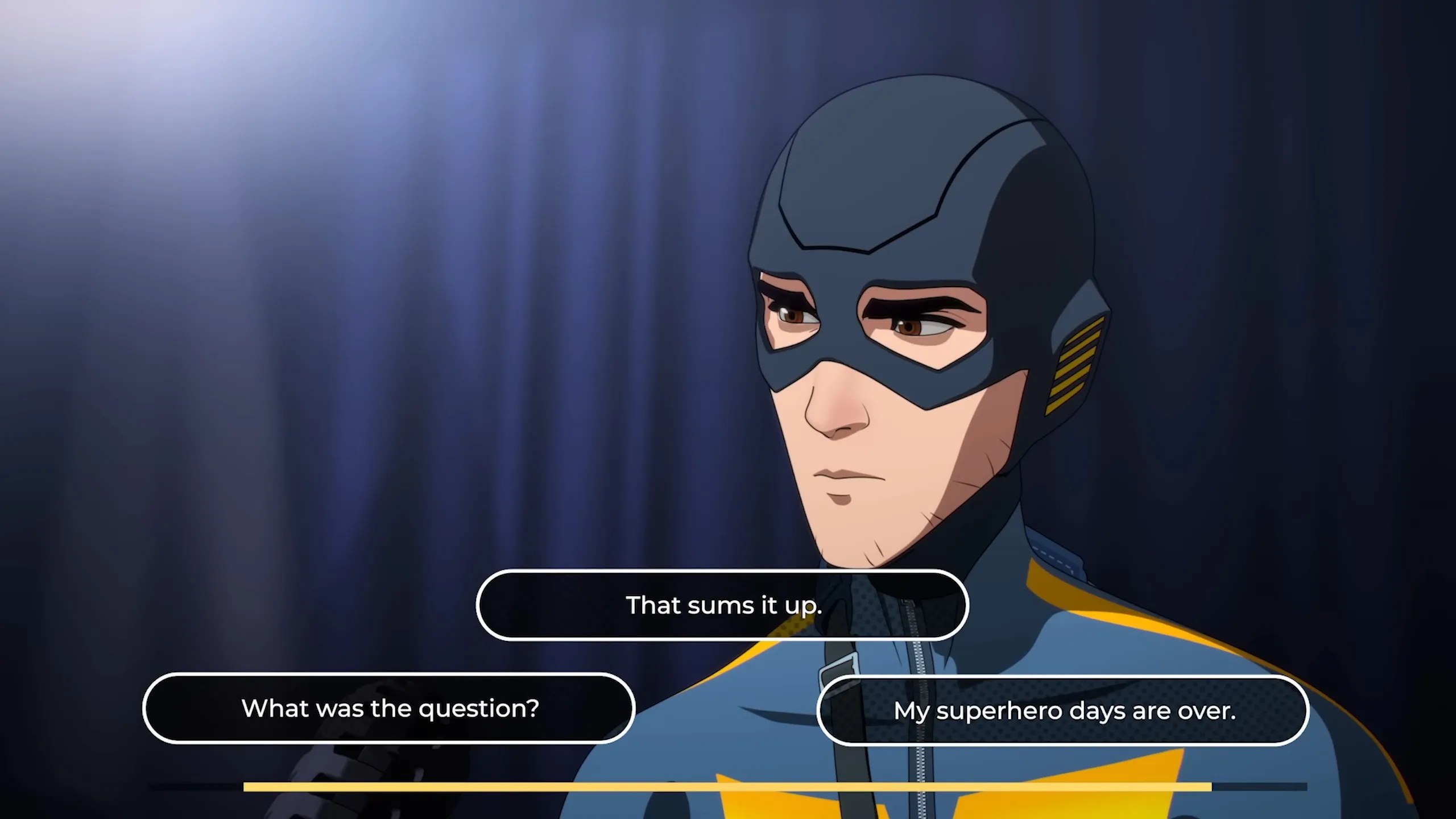
This is, of course, due to the story's branching narrative. Like the Telltale games embedded in Dispatch's DNA, your responses as Robert affect the plot, and even a simple conversation between two characters takes much longer to write and record when you factor in all the possible responses. This also means it's difficult to get people's schedules to align, so Paul recorded his lines alone in the booth with other characters playing in his ears. "It was honestly a very confusing process for me, as a performer," Paul says. "But a challenging and rewarding one, as well."
The developers don't mention seeing Paul confused – they spend most of their time praising his work ethic. If I included every quote from this interview when Paul praises Dispatch's writing, I wouldn't have room for any other quotes. According to Herman, however, Paul really did care about the script, and it was evident from day one. "When you go into a booth, most people have never read the script before," Herman said. "Aaron had read that thing front and back. He was super prepared. Had questions. I mean, he treated it like, like he would treat any project, and, yeah, he was a great collaborator."
Paul actually hasn't played the full game yet, but he got a chance to play the public demo a few weeks ago and finally experienced it for himself. I ask him if he went searching for any particular outcomes or voice lines, but he, perhaps unsurprisingly, doesn't remember much of the specifics of these earlier sessions. "It's one of those things, like, out of sight, out of mind, you know? You lay it out in the sound booth, and you kind of just try to forget about it, you know? And then sometimes you're just kind of pleasantly surprised when one of those sort of 'a ha' moments kind of springs up on you."
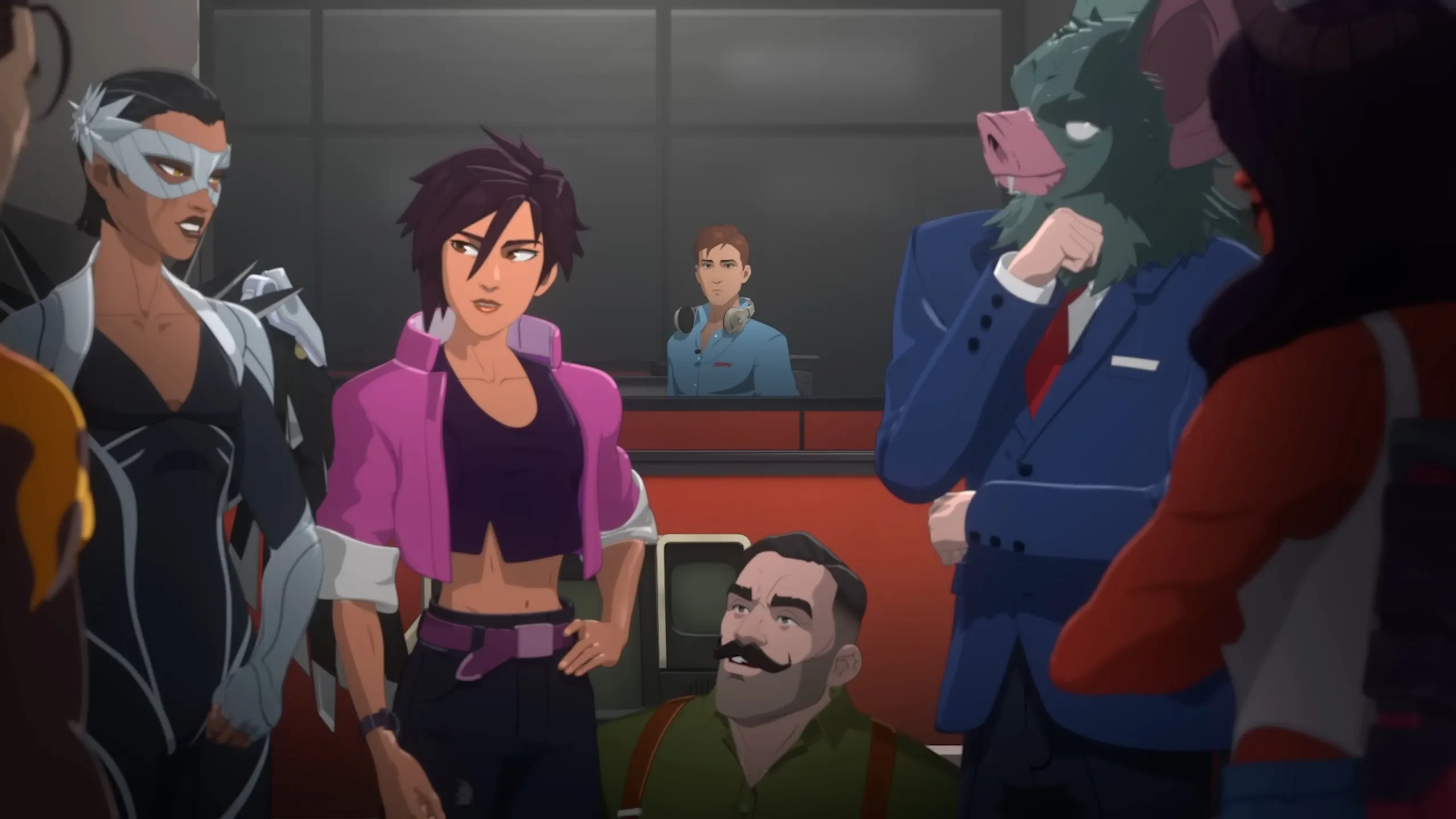
It's a particularly novel experience for Paul, not just because it's his first role in a video game, but because he hasn't regularly played games in years (they took over his life "in a good way," he says, though he's too busy with the wife and kids nowadays). After years of work, it's finally on the horizon. "I'm just thrilled that it's finally coming out," he says. "It seems kind of surreal to be honest."
At this point, my time is up, and I wish him well. "Enjoy Ohio," he tells me. I'll do my best, Aaron. I'll do my best.
For more on Dispatch, you can check out our interviews with the game's directors and art director in the Ninja Gaiden 4 issue of Game Informer.

Explore your favorite games in premium print format, delivered to your door.